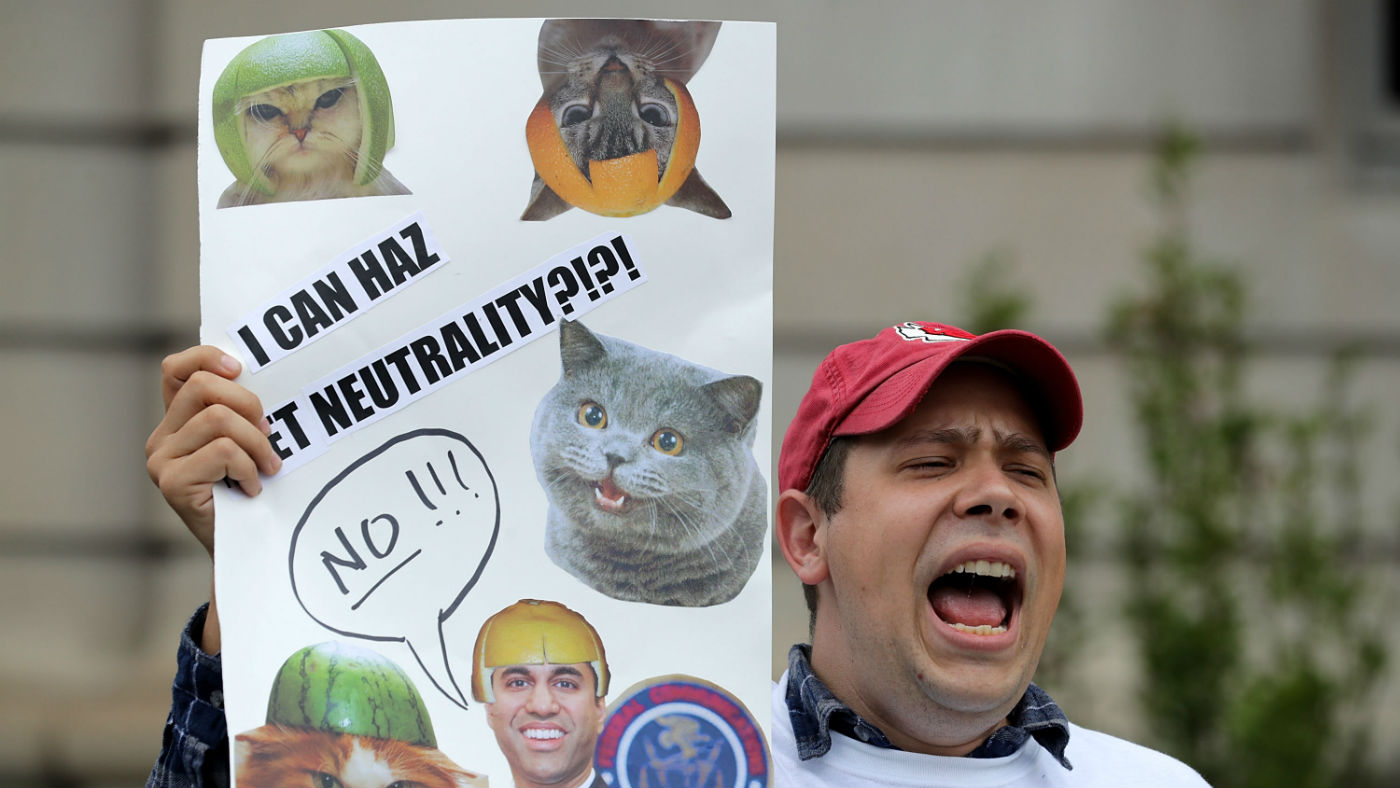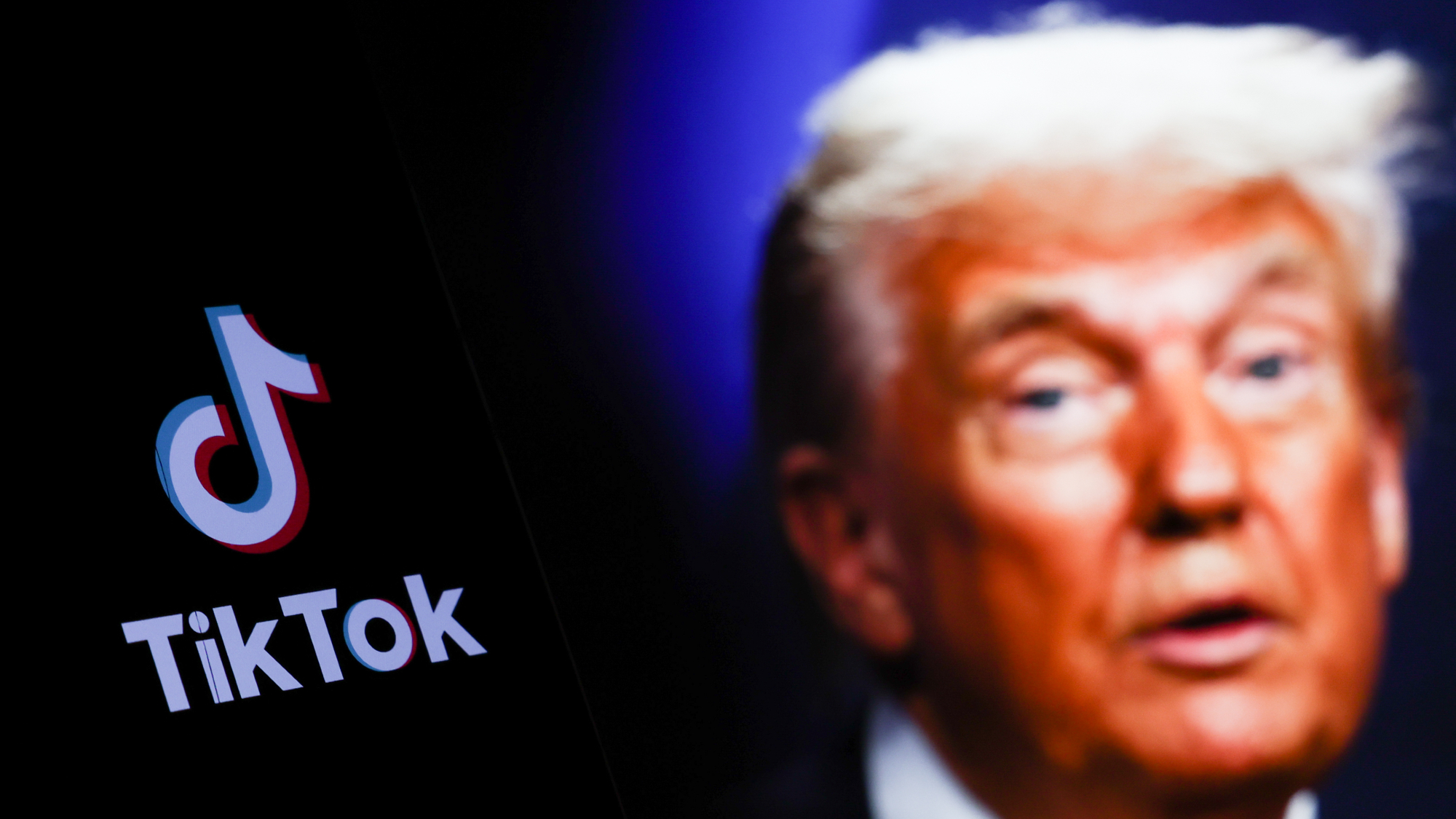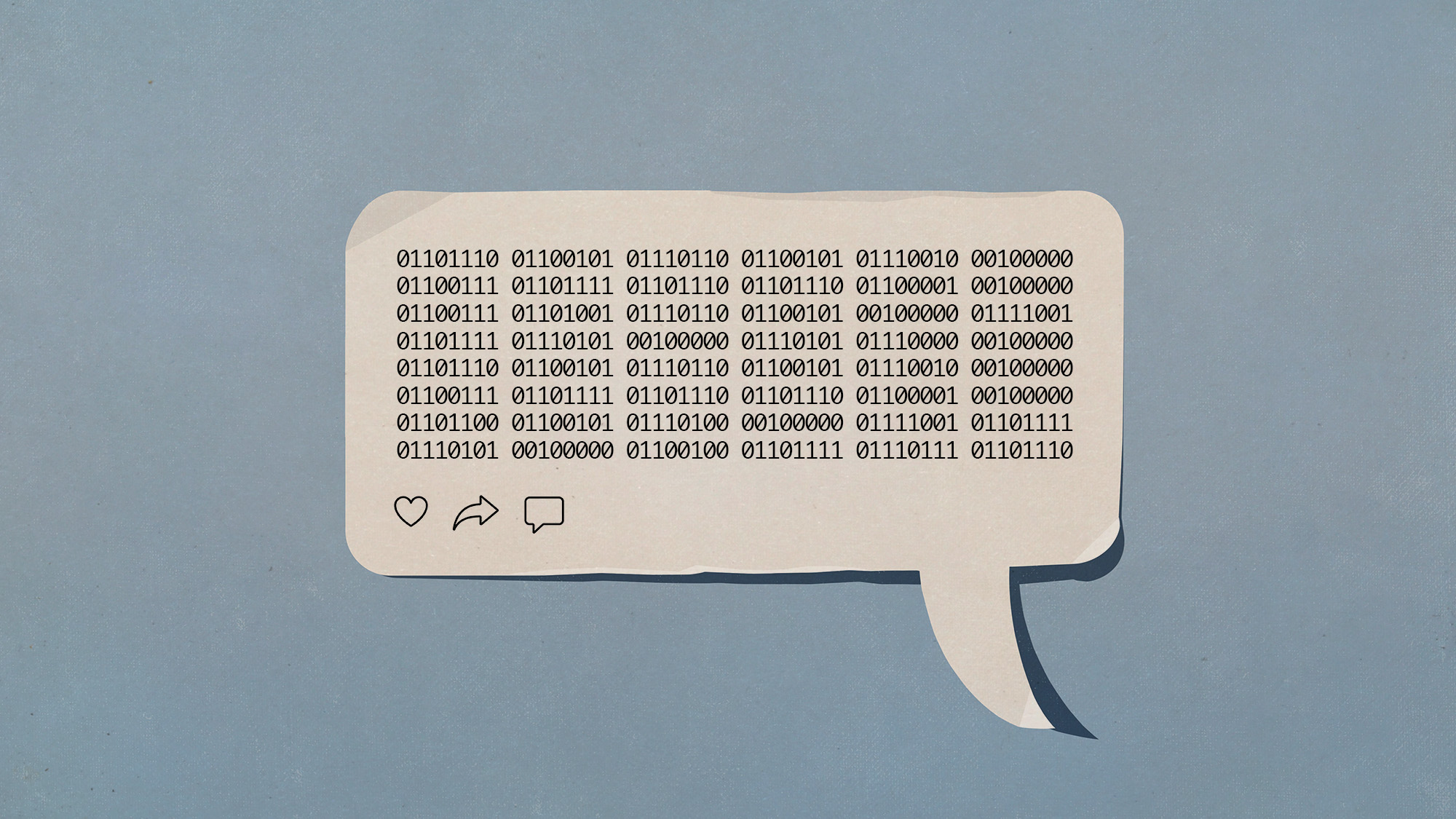Net neutrality: what is it and does it affect UK web users?
Controversial repeal could lead to more online innovation, but at what cost?

A free daily email with the biggest news stories of the day – and the best features from TheWeek.com
You are now subscribed
Your newsletter sign-up was successful
The US-based Federal Communications Commission (FCC) regulator will decide today whether to repeal net neutrality regulations dating back to the Obama era.
Ajit Pai, Donald Trump’s FCC chief, has been spearheading the drive to remove net neutrality regulations since May. The idea is to give internet service providers (ISPs) more headroom to innovate, according to The Guardian.
But the paper says the move is an “important step backwards” for democracy, as existing net neutrality rules prevent ISPs from having their online content and services censored and manipulated.
The Week
Escape your echo chamber. Get the facts behind the news, plus analysis from multiple perspectives.

Sign up for The Week's Free Newsletters
From our morning news briefing to a weekly Good News Newsletter, get the best of The Week delivered directly to your inbox.
From our morning news briefing to a weekly Good News Newsletter, get the best of The Week delivered directly to your inbox.
A decision is expected this evening. BBC News says the Democrats have vowed to try to overturn the proposal if Ajit Pai wins.
What is net neutrality?
Net neutrality relates to the openness of the internet and how internet service providers (ISPs) control customer information.
It means that “no ISP should be able to unfairly manipulate your Internet usage or your experience of the web”, The Independent says, especially if it were to damage the functionality of internet services such as Netflix or YouTube.
A free daily email with the biggest news stories of the day – and the best features from TheWeek.com
Rules passed in 2015 by the FFC suggest heavy regulation is required to prevent ISPs from “artificially directing customers to sites and applications they control or with whom they share special business relationships,” says the website.
ISPs must therefore treat all customer data equally, The Guardian reports, with all data sent at the same speed no matter the service. Those using social media sites, for example, would be given the same internet speed as people using bandwidth-heavy services such as Netflix.
The paper says that net neutrality is under fire because the FCC is looking to repeal the net neutrality rules it introduced in 2015 under Barack Obama’s presidency.
While it may seem peculiar that the FCC wants to repeal its own regulations, the Independent says the transition from the Obama to Trump administration has led to the rule rethink.
The 'day of action'
Web users held an online protest on 12 July in a bid to convince the FCC to retain its current set of rules.
The protest, which was dubbed a ‘day of action’ by its originator Battle for the Net, gained a substantial following from internet giants, consumer groups and celebrities.
Campaigners revealed to BBC News that some 80,000 websites and services took part in the coordinated action.
Companies that supported the protest include Amazon, Reddit, Netflix and Twitter. Many of the services created their own form of protest. Reddit, for example, designed a slow-loading logo that demonstrated how outlawing net neutrality could restrict download speeds.
Opponents of the campaign believe that removing net neutrality could increase competition among ISPs, BBC News reports. This might lead to more “innovation” among ISPs, resulting in better online services.
What does all this mean for the UK?
Changes to net neutrality laws in the US are not expected to have any major effects on users outside the country, says BBC News, but they will “further underline the philosophical differences between the American and European approach to digital rights.”
Ed Johnson-Williams, a campaigner at the UK-based Open Rights Group, told Sky News that the EU’s net neutrality rules are “some of the strongest net neutrality protections in the world.”
The UK currently operates under these neutrality rules, he says. The Government will aim to adopt them into its own laws through the Great Repeal Bill when it leaves the EU.
“We’ll have to keep an eye out to see if the net neutrality rules are altered post-Brexit,” says Johnson-Williams.
-
 Local elections 2026: where are they and who is expected to win?
Local elections 2026: where are they and who is expected to win?The Explainer Labour is braced for heavy losses and U-turn on postponing some council elections hasn’t helped the party’s prospects
-
 6 of the world’s most accessible destinations
6 of the world’s most accessible destinationsThe Week Recommends Experience all of Berlin, Singapore and Sydney
-
 How the FCC’s ‘equal time’ rule works
How the FCC’s ‘equal time’ rule worksIn the Spotlight The law is at the heart of the Colbert-CBS conflict
-
 Moltbook: The AI-only social network
Moltbook: The AI-only social networkFeature Bots interact on Moltbook like humans use Reddit
-
 Are Big Tech firms the new tobacco companies?
Are Big Tech firms the new tobacco companies?Today’s Big Question A trial will determine whether Meta and YouTube designed addictive products
-
 Is social media over?
Is social media over?Today’s Big Question We may look back on 2025 as the moment social media jumped the shark
-
 Australia’s teen social media ban takes effect
Australia’s teen social media ban takes effectSpeed Read Kids under age 16 are now barred from platforms including YouTube, TikTok, Instagram, Facebook, Snapchat and Reddit
-
 X update unveils foreign MAGA boosters
X update unveils foreign MAGA boostersSpeed Read The accounts were located in Russia and Nigeria, among other countries
-
 Trump allies reportedly poised to buy TikTok
Trump allies reportedly poised to buy TikTokSpeed Read Under the deal, U.S. companies would own about 80% of the company
-
 What an all-bot social network tells us about social media
What an all-bot social network tells us about social mediaUnder The Radar The experiment's findings 'didn't speak well of us'
-
 Broken brains: The social price of digital life
Broken brains: The social price of digital lifeFeature A new study shows that smartphones and streaming services may be fueling a sharp decline in responsibility and reliability in adults